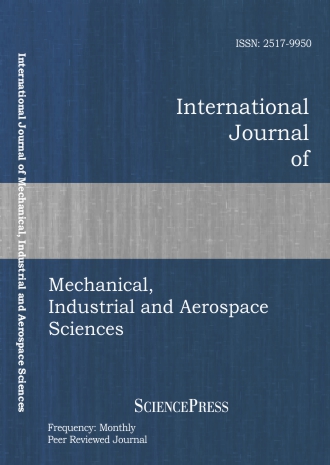
Scholarly
Volume:6, Issue: 2, 2012 Page No: 376 - 384
International Journal of Mechanical, Industrial and Aerospace Sciences
ISSN: 2517-9950
1171 Downloads
Port Positions on the Mixing Efficiency of a Rotor-Type Mixer – A Numerical Study
The purpose of this study was to explore the complex flow structure a novel active-type micromixer that based on concept of Wankle-type rotor. The characteristics of this micromixer are two folds; a rapid mixing of reagents in a limited space due to the generation of multiple vortices and a graduate increment in dynamic pressure as the mixed reagents is delivered to the output ports. Present micro-mixer is consisted of a rotor with shape of triangle column, a blending chamber and several inlet and outlet ports. The geometry of blending chamber is designed to make the rotor can be freely internal rotated with a constant eccentricity ratio. When the shape of the blending chamber and the rotor are fixed, the effects of rotating speed of rotor and the relative locations of ports on the mixing efficiency are numerical studied. The governing equations are unsteady, two-dimensional incompressible Navier-Stokes equation and the working fluid is the water. The species concentration equation is also solved to reveal the mass transfer process of reagents in various regions then to evaluate the mixing efficiency. The dynamic mesh technique was implemented to model the dynamic volume shrinkage and expansion of three individual sub-regions of blending chamber when the rotor conducted a complete rotating cycle. Six types of ports configuration on the mixing efficiency are considered in a range of Reynolds number from 10 to 300. The rapid mixing process was accomplished with the multiple vortex structures within a tiny space due to the equilibrium of shear force, viscous force and inertial force. Results showed that the highest mixing efficiency could be attained in the following conditions: two inlet and two outlet ports configuration, that is an included angle of 60 degrees between two inlets and an included angle of 120 degrees between inlet and outlet ports when Re=10.
Authors:
References:
[1] Yongdae Kim, Jongkwang Lee and Sejin Kwon, "A novel micro-mixer